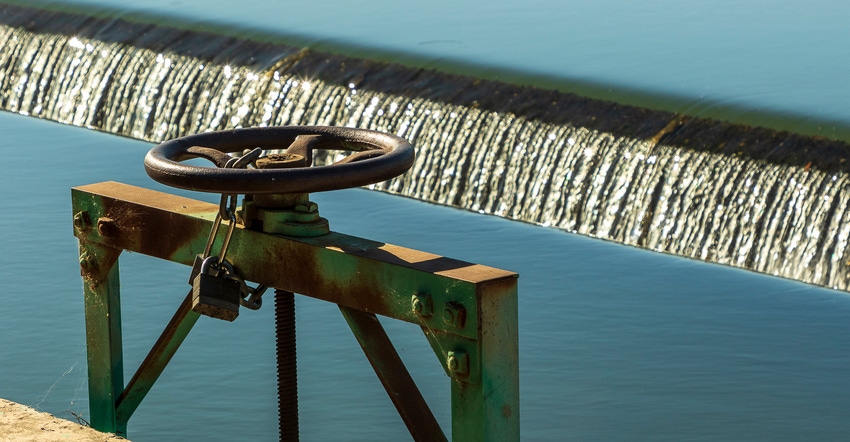
Water districts with some of the most senior rights to rivers in the state were apparently blindsided the other day by a letter signed by the heads of the California Environmental Protection Agency and California Natural Resources Agency. California will no longer negotiate with several water districts over the so-called voluntary agreements that all along were viewed as a veiled attempt to take water that does not belong to the state and force farmers to fix water quality problems allowed by the state.
That veil has been torn. The state's intentions are now obvious.
After stepping away from these "voluntary" negotiations, California will now focus its attention on northern California rivers for water to dilute the San Francisco Bay of the sewage and toxins Bay Area cities let flow into the estuary with impunity.
In separate interviews with Western Farm Press, managers with the Oakdale and Turlock Irrigation Districts claim that California has no legal authority to take their water because of state water law. The districts hold pre-1914 rights to the Stanislaus and Tuolumne rivers, respectively, which Steve Knell, Oakdale Irrigation District's general manager, says is tantamount to private property rights. This is why the state wants to do away with the water rights system, he said.
The irony in the state's letter to the districts is obvious. In it the state writes: "a successful VA (voluntary agreement) among water users and state and federal agencies must withstand legal and scientific scrutiny." That statement is either tone deaf or was made knowing that the legal challenges filed by the districts have merit and that going after northern California water may be easier.
The letter continues by claiming future voluntary agreements "will be subject to third-party peer review and environmental analysis pursuant to the Water Code and the California Environmental Quality Act." To declare that state officials will build a plan that withstands legitimate scientific scrutiny presumes a scientific acumen that does not exist in Sacramento. To cite CEQA after giving a pass to well-placed political donors to build sporting arenas is laughable.
Instead, the state will now focus its duplicity on forcing Sacramento River basin water users into voluntary agreements. At the same time the State Water Board will move forward to forcibly take water from the Stanislaus, Tuolumne, and Merced rivers. It is safe to assume that the six water agencies with senior rights to the three watersheds – The San Francisco Public Utilities Commission, and the Oakdale, Turlock, South San Joaquin, Modesto, and Merced irrigation districts – will once again join forces to stop California through more lawsuits.
Turlock Irrigation District spokesperson Constance Anderson characterized the letter as "disappointing," saying TID continues to support a comprehensive, science-based plan to improve the ecology of the Tuolumne River. Turlock and Modesto irrigation districts are suing the state over its decision to move forward with "implementation of their flawed Phase 1 Bay-Delta Water Quality Control Plan." Under the plan the districts would give up 40% of their springtime flows, a figure that the districts say was pulled from thin air and is not based on science. That water would be forced to flow unimpeded to the Pacific Ocean. This is not how you make a state more drought resilient.
Critics of the state's move away from the negotiating table includes The Modesto Bee, which slammed the state's decision in an editorial.
About the Author(s)
You May Also Like






